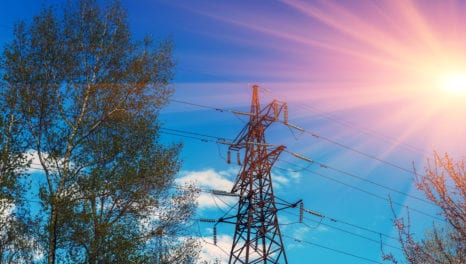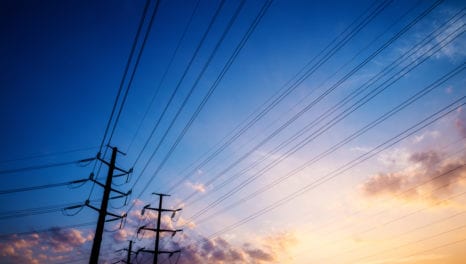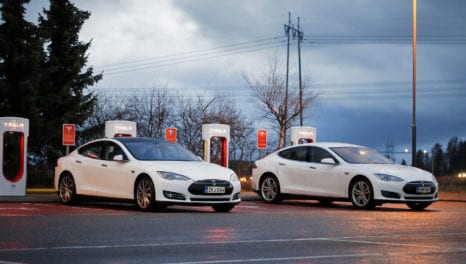Renationalisation would risk UK missing net-zero target, report claims
Labour's plans for renationalising energy networks would put at risk the UK's efforts of reaching net-zero emissions by 2050, according to a new report.
24th September 2019 by Networks

The research, which is the first major review of the Labour Party’s plans to nationalise and completely restructure the UK’s energy networks, concluded such wholesale changes would divert resources and investment, with the uncertainty leading to a potential drain of talent at a critical time for tackling the climate emergency.
Commissioned by the Energy Networks Association (ENA) and carried out by independent firm Frontier Economics, the report assessed in detail the polices laid out in Labour’s ‘Bringing Energy Home’ paper and concluded that a newly restructured, nationalised energy body would have a detrimental impact on the UK’s progress towards net zero and would likely fail to achieve the stated outcomes for consumers.
The main concerns highlighted included:
- The risk of delays: a complete overhaul of the ownership and structure of energy networks would take significant time to create and establish. Such a wide ranging reform would divert resources and slow progress towards the transition to net zero
- Reduced accountability: Labour’s plans would see the National Energy Agency setting its own policy and regulating itself and others, in addition to being directly responsible for delivery. The report points out the incentive problems and conflicts of interest this system would bring, with no checks and balances and general lack of scrutiny, concluding that this is likely to lead to delivery errors to the detriment of consumers
- Disruption to innovation: uncertainty leads to a slowdown in investment, and a temporary slowdown could result in skilled staff moving elsewhere. Fragmentation of the market would have a detrimental impact on the creation of innovation hubs and reduce the scope for economies of scale. Overall there is a real risk of a brain drain and an erosion of the UK’s world leading expertise in this area
- Increase costs to customers: In addition to the high costs associated with implementing such a major change, once established it is unclear how the new energy agencies will fund the level of investment needed to deliver net zero and will likely seek subsidies from Government, leading to higher taxes or higher borrowing.
Mike Huggins, director of energy at Frontier Economics, said: “Our appraisal of the policy proposals set out in Bringing Energy Home is based on the available evidence: drawing on historical performance of utility infrastructure in the UK under different ownership and governance models, together with academic and other evidence on what circumstances are likely to drive better outcomes for consumers.
“Based on our review of this evidence, the conclusion is clear. There is nothing in these proposals that suggests we should have confidence that they will meet the enormous challenge of achieving net zero on time and at reasonable cost. These proposals carry with them a very significant risk of being less effective – more costly and greater risk of delay – than the current system.”
David Smith, chief executive of the ENA, said: “The energy networks are wholeheartedly committed to delivering net zero by 2050, having already played their part in helping Britain become the superpower of renewable energy that it is today. We share the objectives set out in Bringing Energy Home, but we are clear that the most cost effective and efficient way to achieve these is by building on the progress networks are already making towards this target. A complete restructuring of the energy sector would not only be costly and unnecessary, but would also lead to significant disruption and delays to achieving the goals of net zero by 2050 when it is clear that time is not something we currently have the luxury of.”
Comments
Login on register to comment
Related content

Power
The future for vegetation management
Why networks should focus on data not trees to overcome the costly challenges involved in vegetation management

Power
An unprecedented opportunity for change
Why short interruptions will matter in RIIO-ED2 and how to address them.

Power
Time for less talk and more action on decarbonisation
Core "oven-ready" solutions to decarbonising heat and transport exist today and should be implemented without delay, says WPD's future power networks expert.
Related supplier content
![‘Learning by doing’ on the road to net zero [test product]](https://networksonline.s3.amazonaws.com/products/images/3.jpg)
People & Skills
‘Learning by doing’ on the road to net zero [test product]
DSO director Andrew Roper discusses 'Learning by doing'

Power
Load patterns and lockdown: how Covid-19 is impacting electricity networks
Insights into dynamics on the low voltage network as the outbreak unfolds

Downloads
Protect electrical equipment from insulation failure
Insulation faults are a major cause leading to the eventual failure of electrical equipment. Partial discharge (PD) is a very reliable indicator of developing insulation faults. Regular PD testing allows users to detect and analyze PD activity